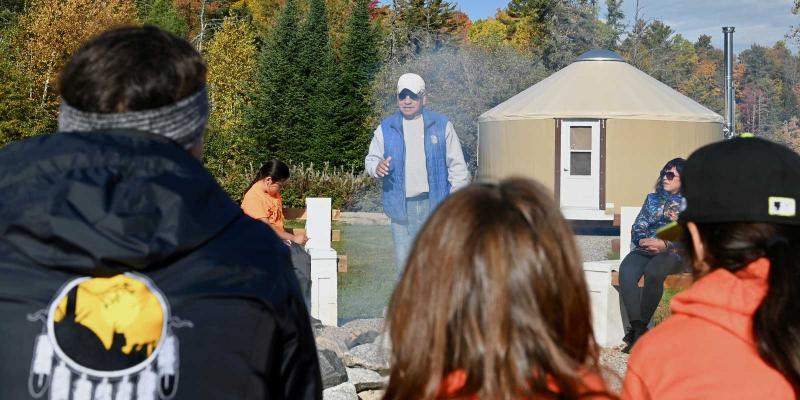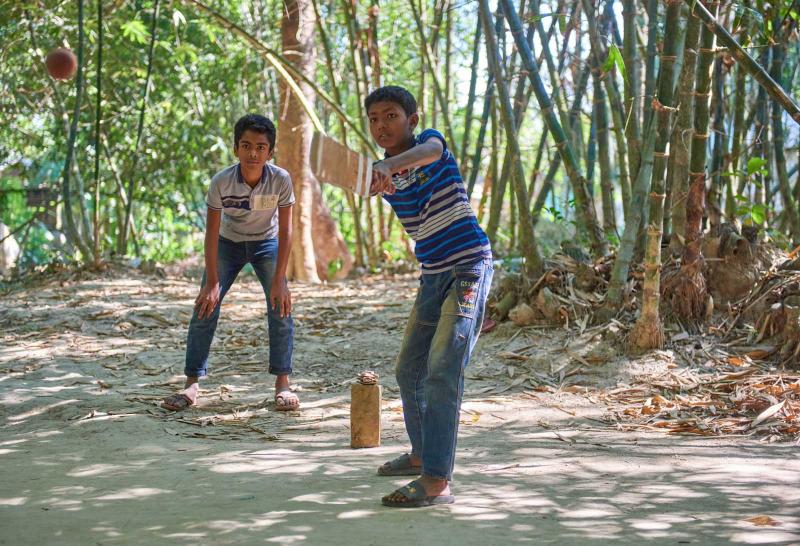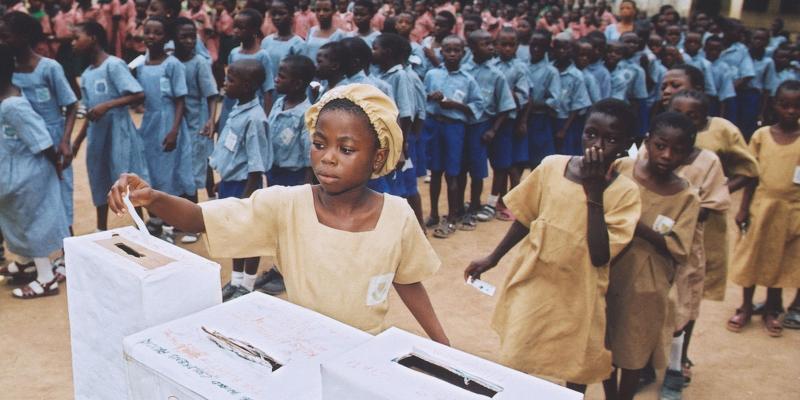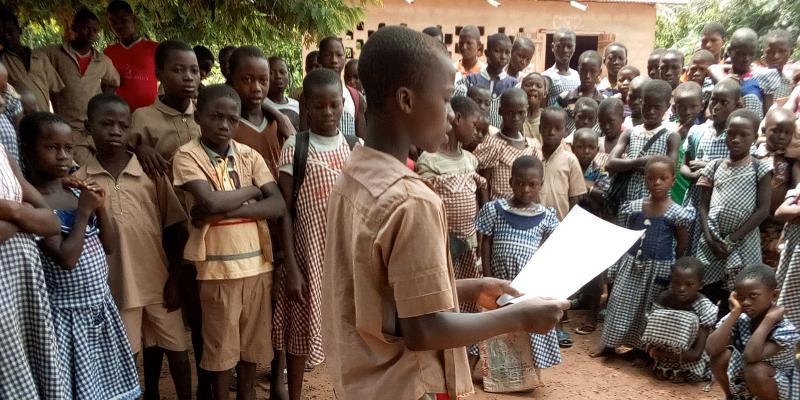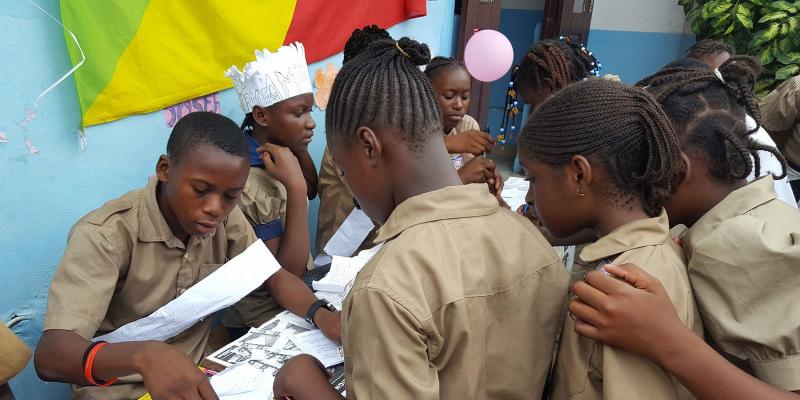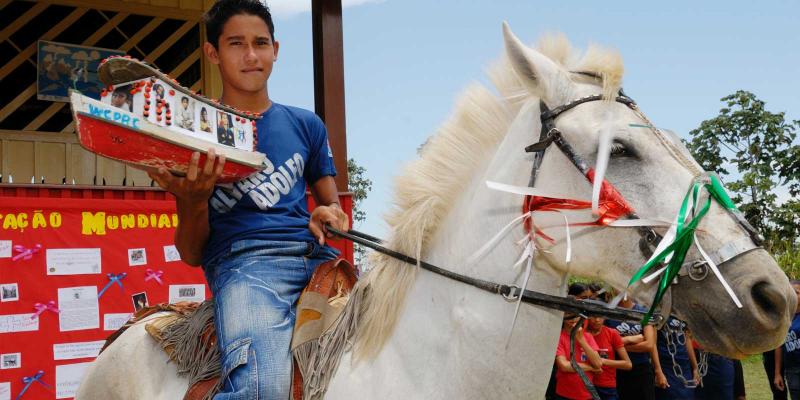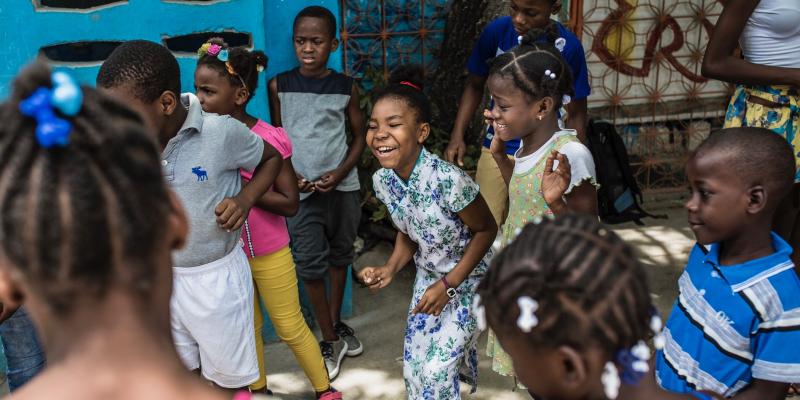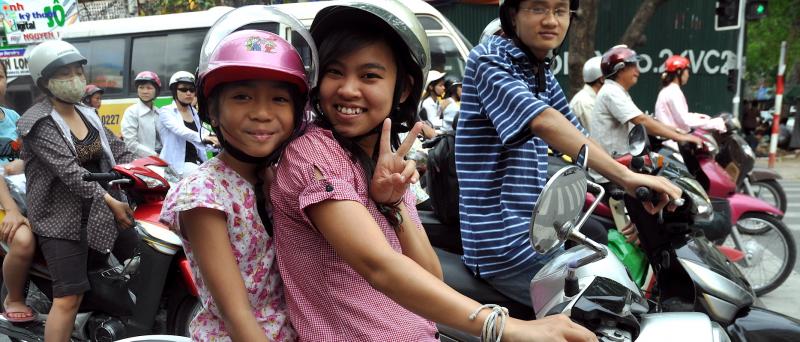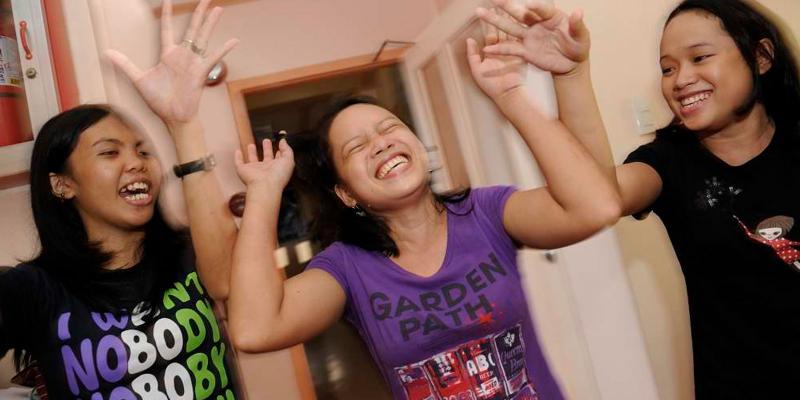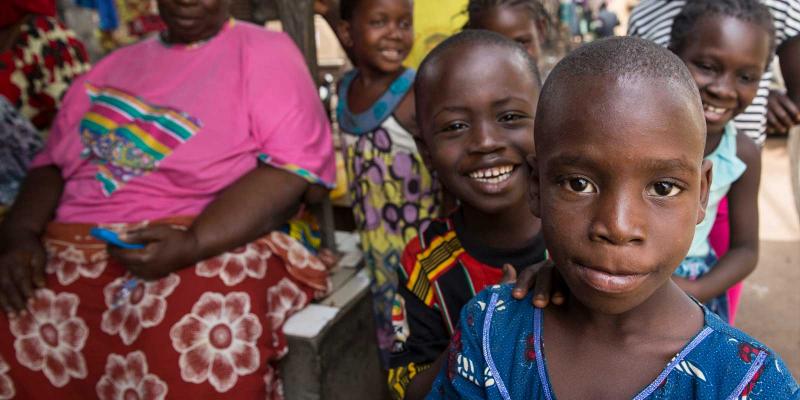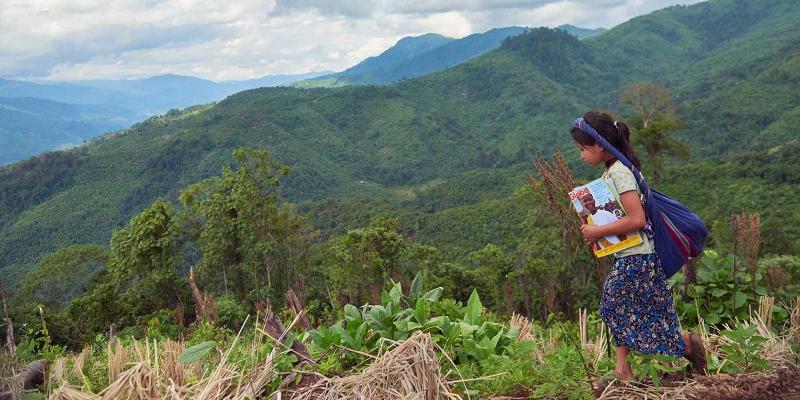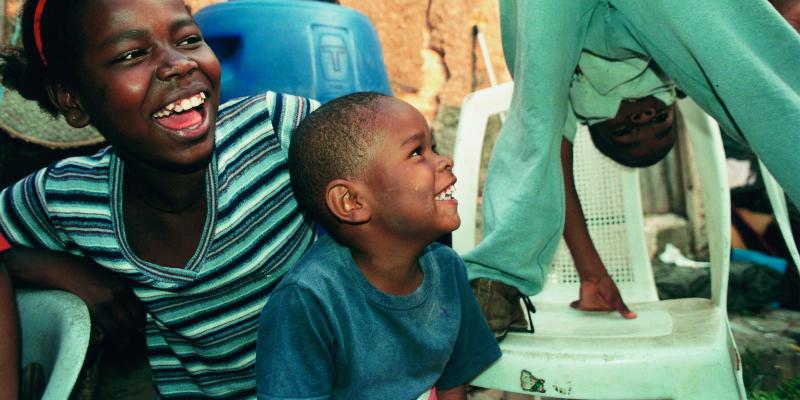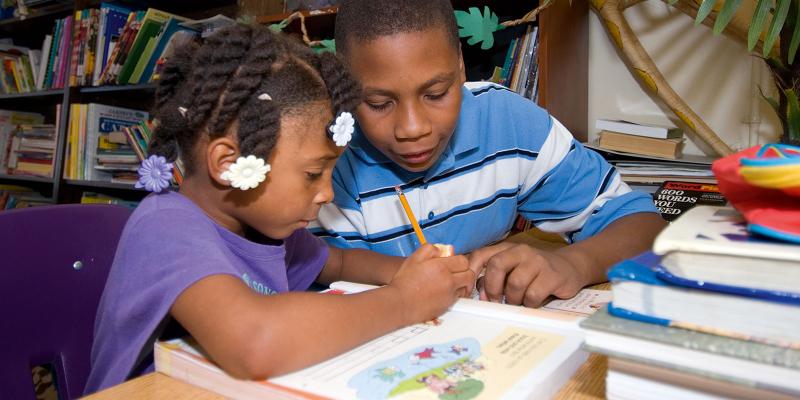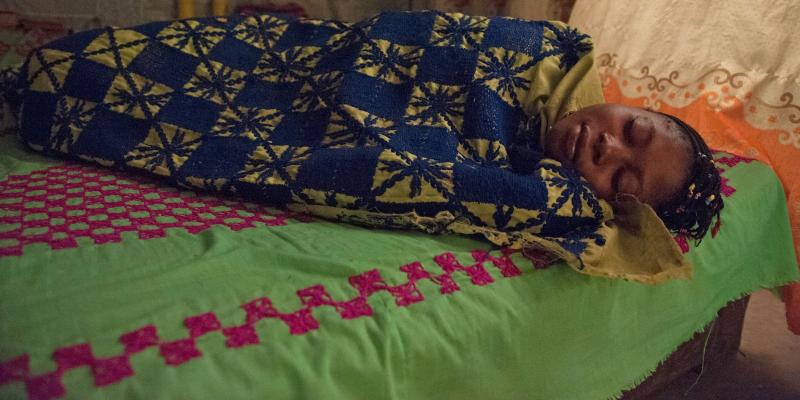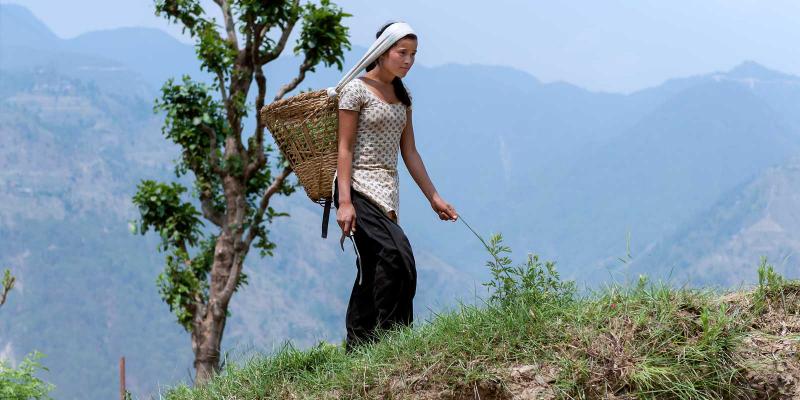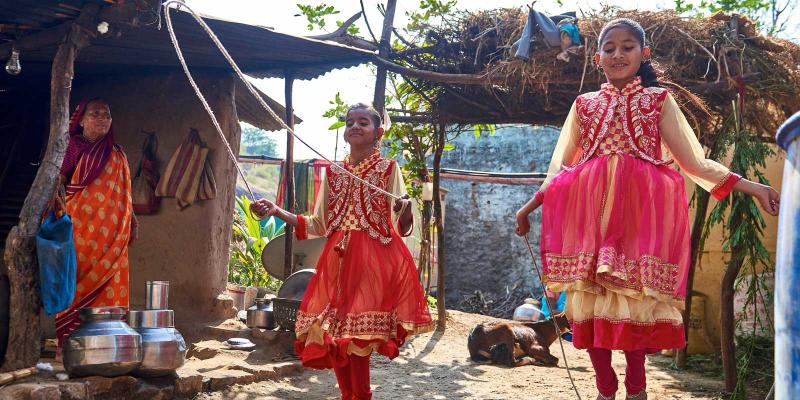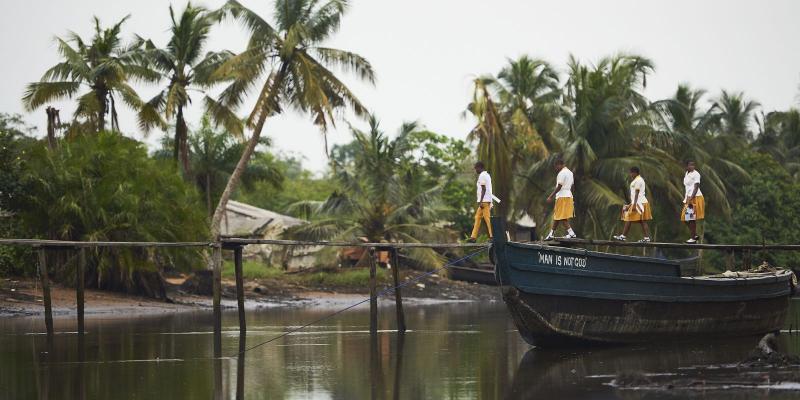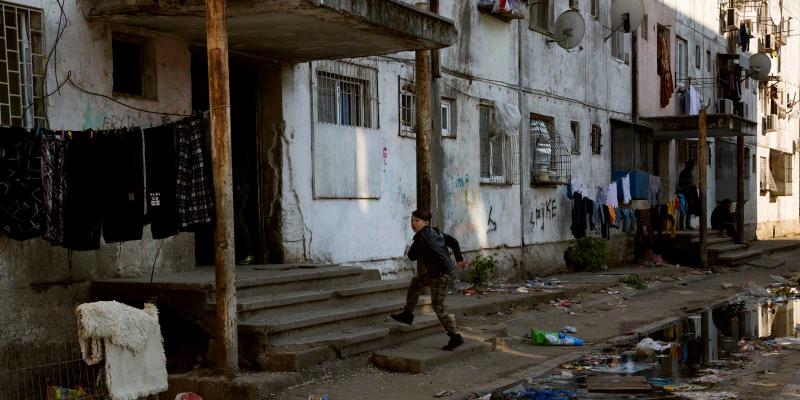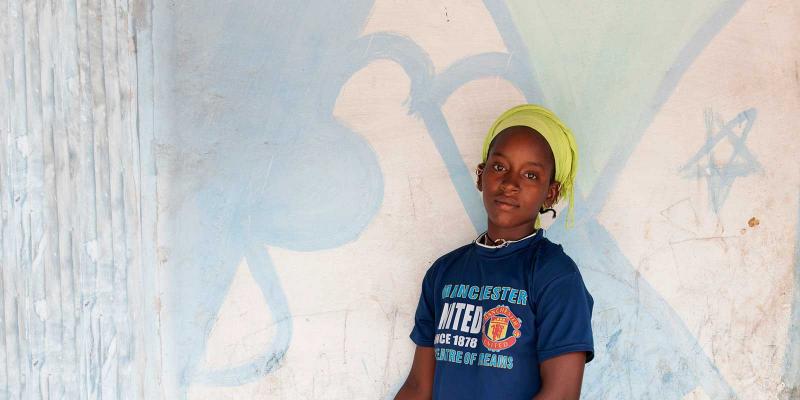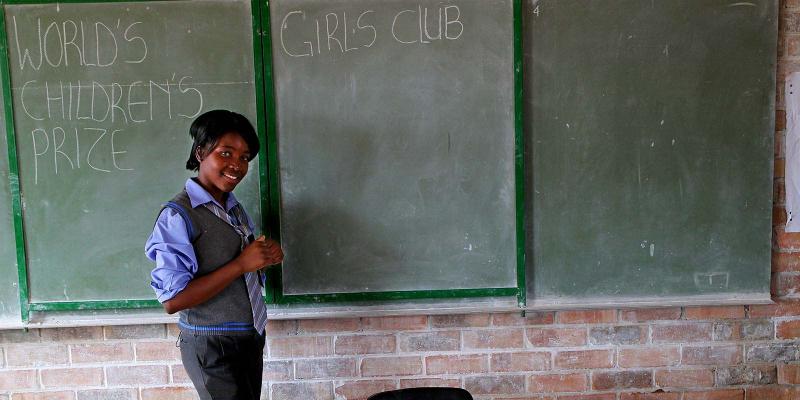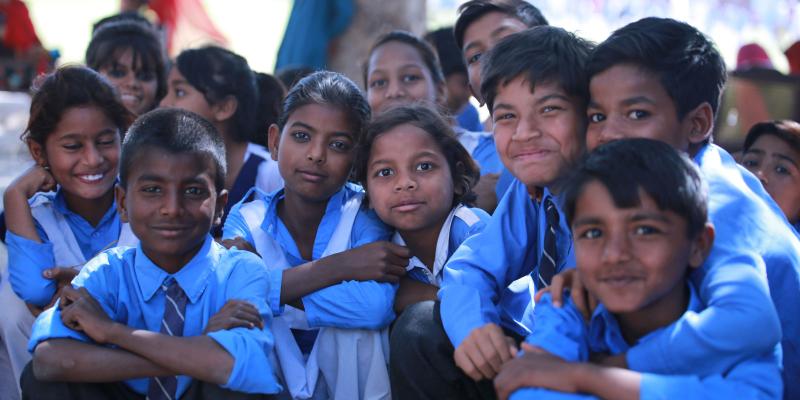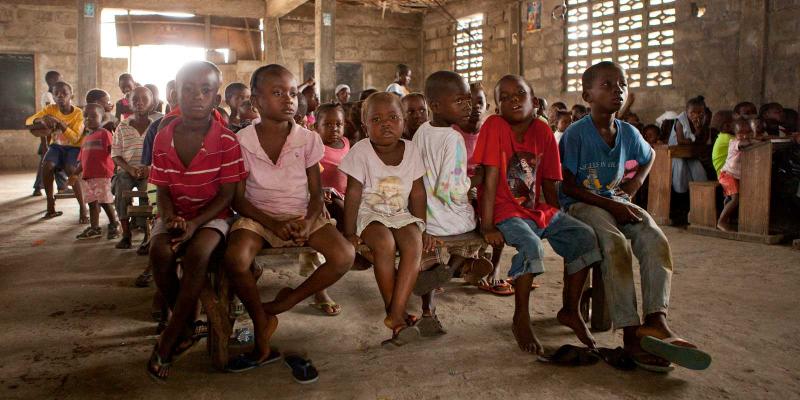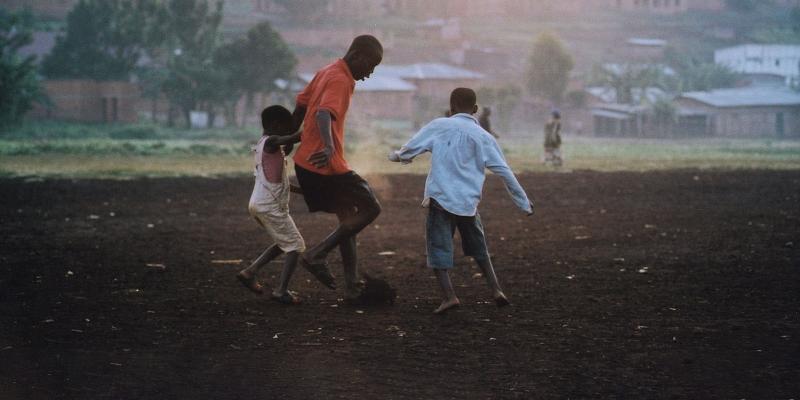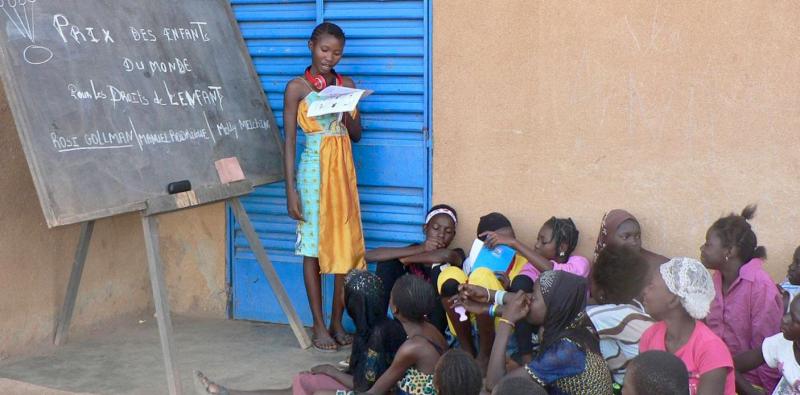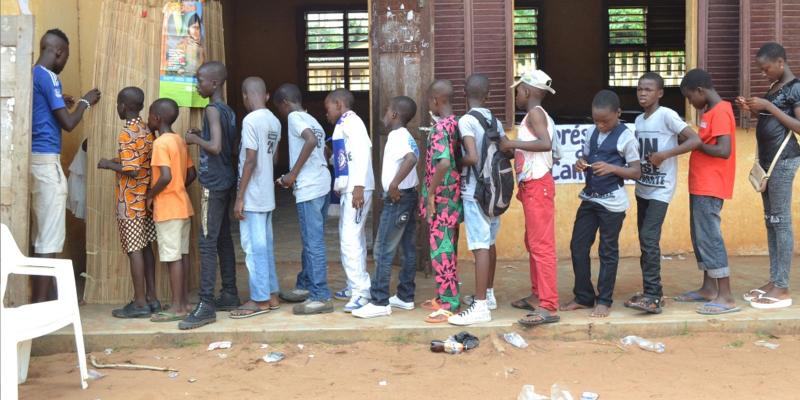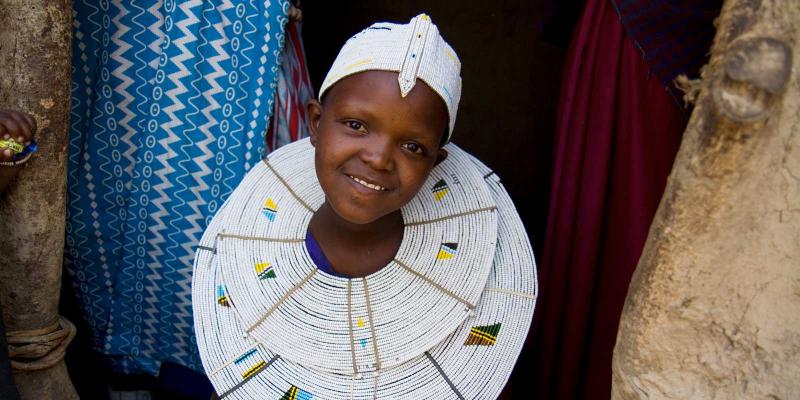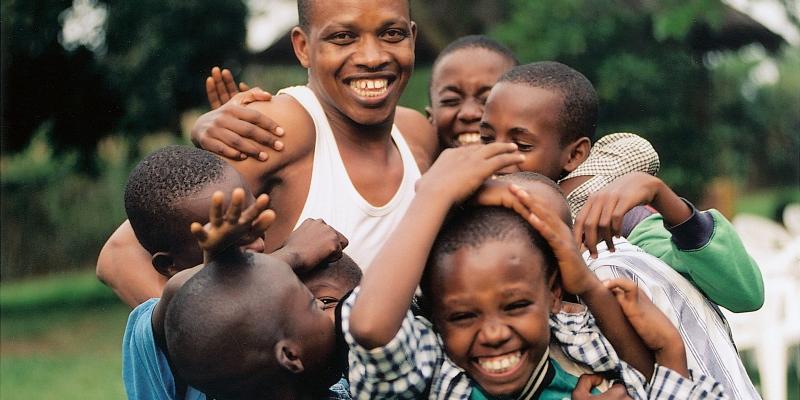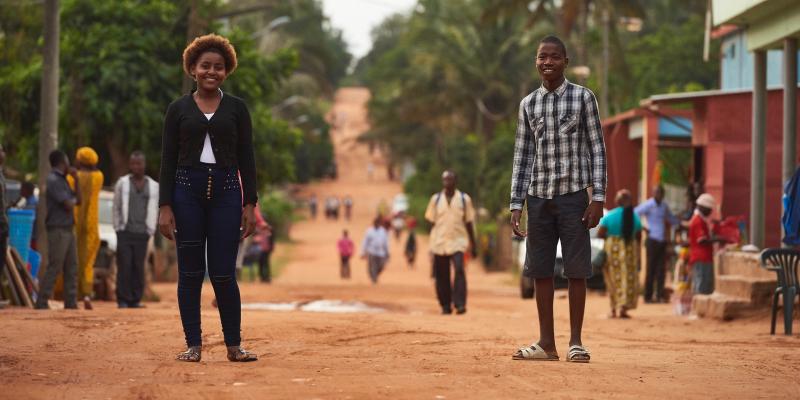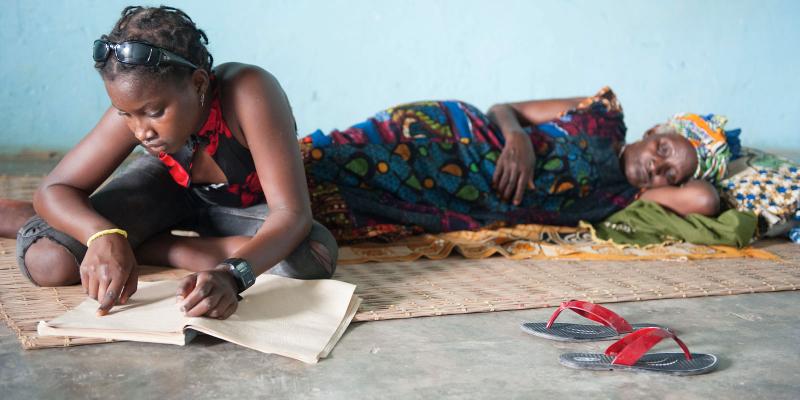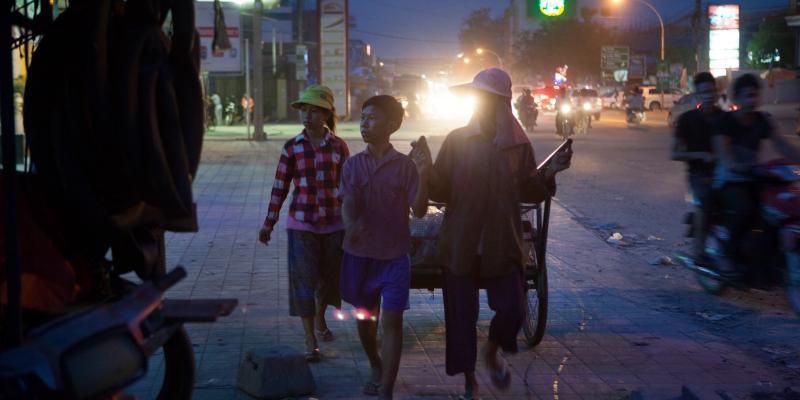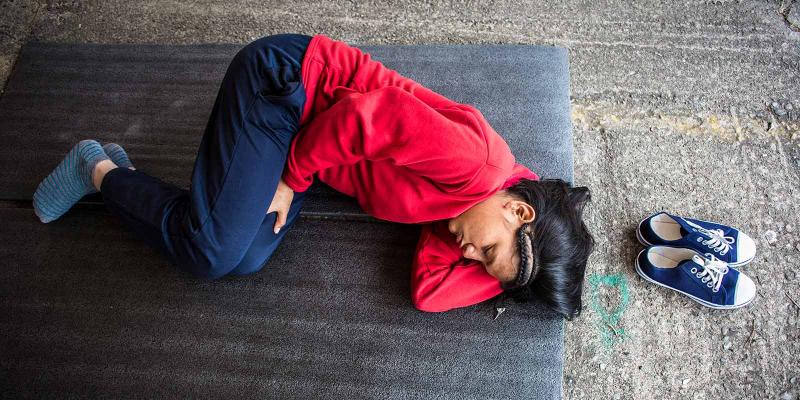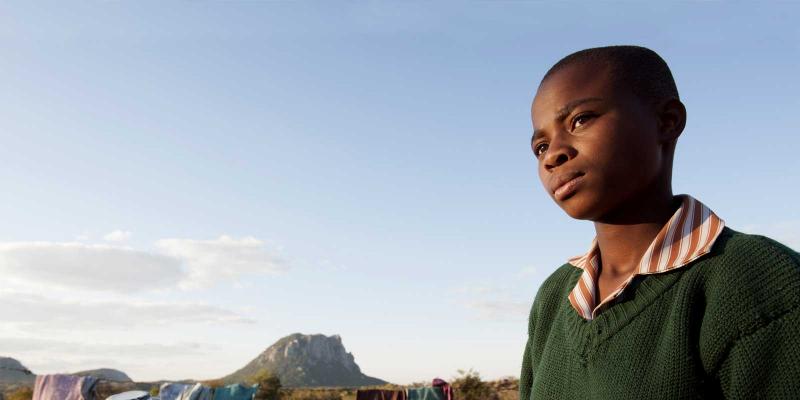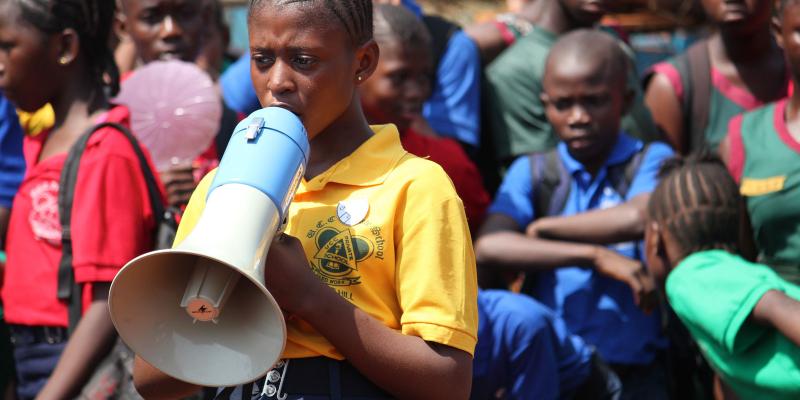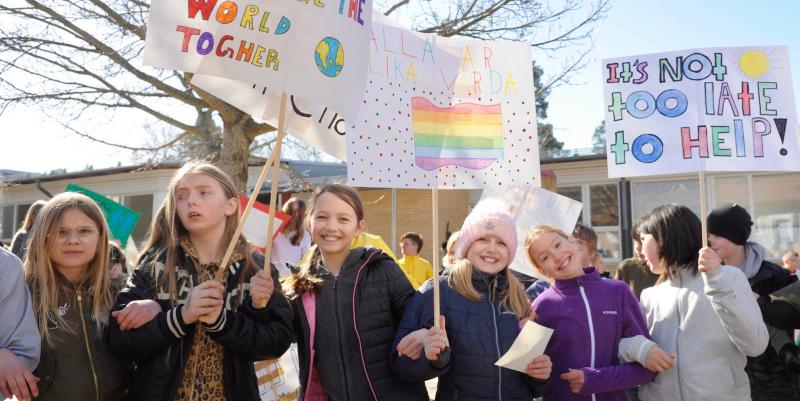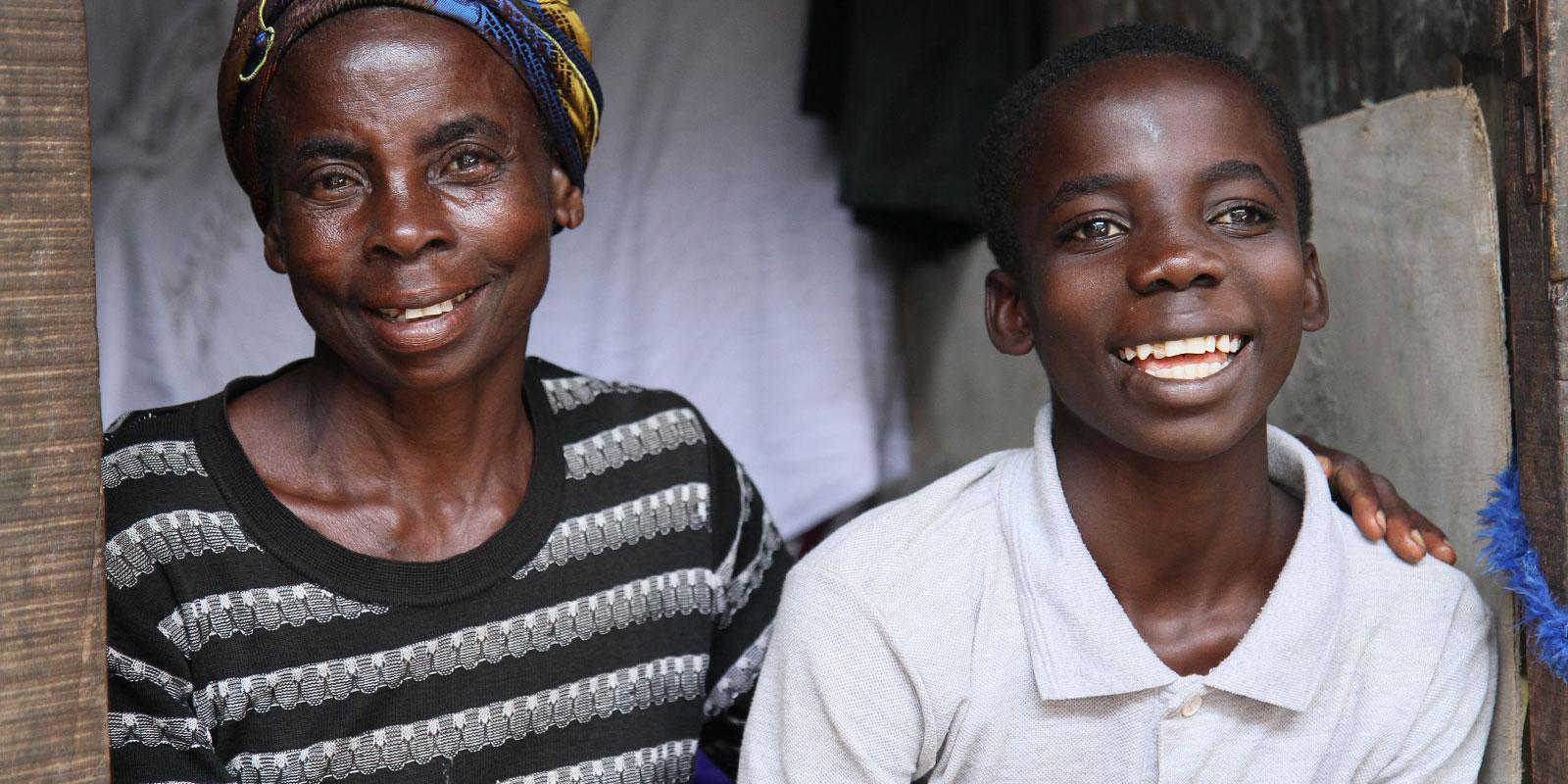
How are Ghana’s children?
Ghana has ratified (pledged to follow) the UN Convention on the Rights of the Child. This means that Ghana must respect the rights of the child and listen to what children have to say. Are the rights of the child respected in Ghana?
12.7 million children
28.2 million people live in Ghana. 12.7 million are children, and over 4 million of the children are under five years old.Name and nationality
From the day you are born you have the right to a name and to be registered as a citizen in your country. 870,000 children are born every year in Ghana. 3 out of 10 are never registered. There is no documented proof that they exist! Birth registration is free in Ghana for the first twelve months.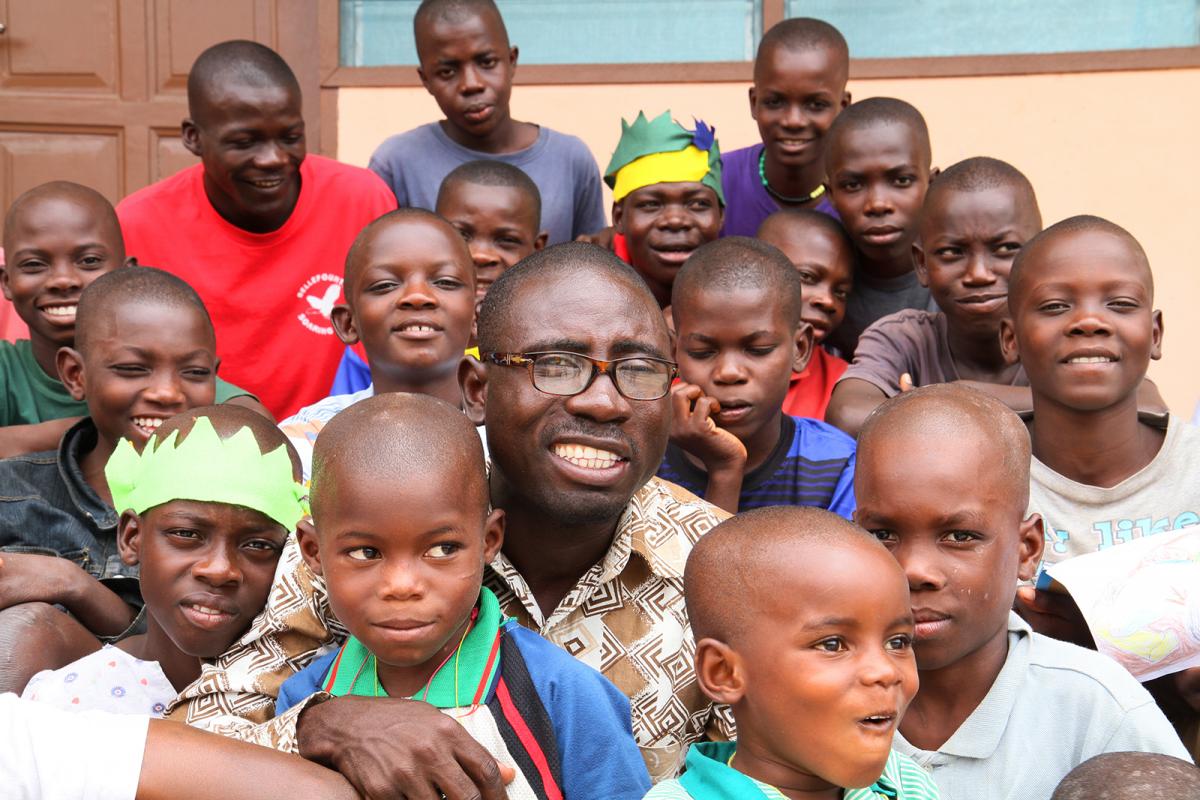
WCP Child Rights Hero James Kofi Annan fights for the freedom and empowerment of children who are forced to work in Ghana. ©Bo Öhlén/WCPF
Survive and grow
You have the right to life. Ghana must do all it can to allow children to survive and develop. 1 out of 16 children in Ghana (51,000 every year) die before the age of 5, usually due to causes that could have been prevented.Health and well-being
You have the right to food, clean water, medical care and the right to privacy when consulting an adult about any health problem. Almost 8 of 10 children in Ghana use basic drinking water services. 14 of 100 children use basic sanitation services. Many new born children are at risk because they do not get enough iodine. 6 out of 10 who die of malaria in Ghana are children. Almost 5 out of 10 children under five sleep under impregnated mosquito nets, which makes them safer. 32,000 children (aged 0-14) are believed to live with HIV/AIDS.
Freed children who have been exploited as slaves live for a while in James Kofi Annan’s children’s homes and go to school. They need support and rehabilitation before returning home. ©Bo Öhlén/WCPF
A home, clothing, food and security
You have the right to a home, food, clothing, education, health care and security. 1 out of 4 children in Ghana live in extreme poverty with less than 1.90 US-dollar (11 Cedi) a day to live on.Education
You have the right to go to school. Primary and secondary schools should be free for everyone. Almost 9 out of 10 children in Ghana go to school, but many of them leave school too early.Protection against violence
You have the right to protection against all forms of violence, including neglect, maltreatment and abuse. Only 60 countries have forbidden all forms of corporal punishment for children. Ghana has not. Many schools still allow caning. 9 out of 10 children are punished physically or psychologically.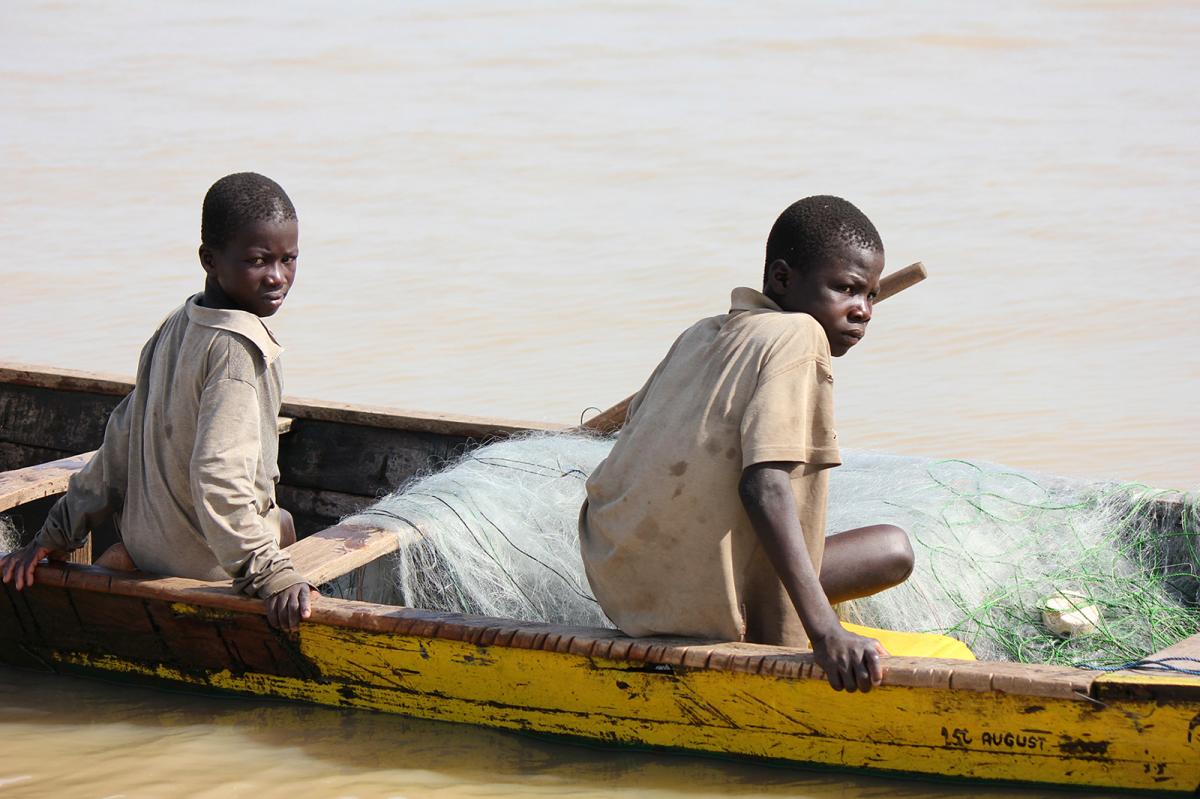
Many children in Ghana are exploited as slave labour in the fishing industry on Lake Volta. More about child labour in Ghana ©Bo Öhlén/WCPF
Hazardous child labour
You have the right to be protected against both economic exploitation and work that is hazardous to your health or which prevents you from going to school. All work is prohibited for children under 12. Some children are forced into the worst forms of child labour, such as being debt slaves, child soldiers or commercial sexual exploitation. Children in Ghana are not to be engaged in any form of work from 8 pm to 6 am, but an estimated 1.4 million children (more than 2 out of 10 children aged 5-14) have to work.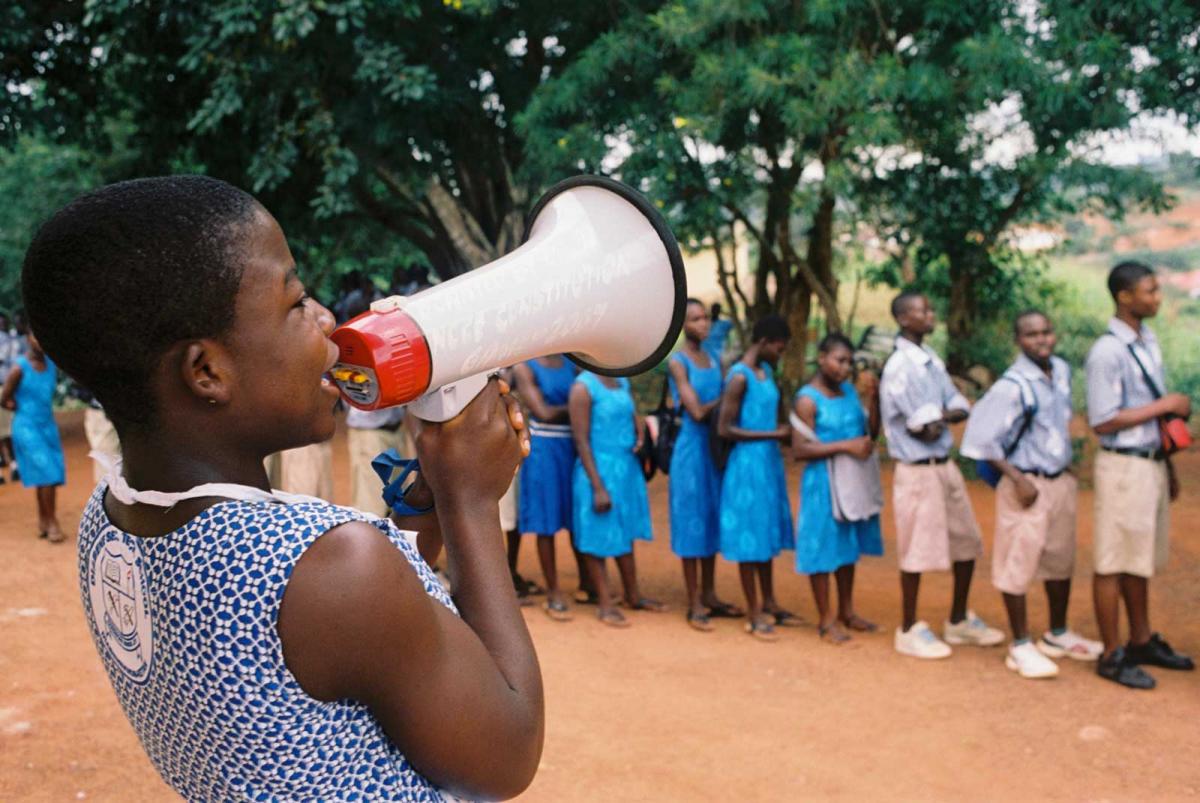
Doris organizes a voting queue on Global Vote Day in Ghana. ©Tora Mårtens/WCPF
Your voice must be heard
You have the right to say what you think about any issue that affects you. The adults should listen to the child’s opinion before they make decisions, which must always be made in the best interest of the child!Related stories
WORLD'S CHILDRENS PRIZE FOUNDATION
Långgatan 13, 647 30, Mariefred, Sweden
Phone: +46-159-129 00 • info@worldschildrensprize.org
© 2020 World’s Children’s Prize Foundation. All rights reserved. WORLD'S CHILDREN'S PRIZE®, the Foundation's logo, WORLD'S CHILDREN'S PRIZE FOR THE RIGHTS OF THE CHILD®, WORLD'S CHILDREN'S PARLIAMENT®, WORLD'S CHILDREN'S OMBUDSMAN®, WORLD'S CHILDREN'S PRESS CONFERENCE® and YOU ME EQUAL RIGHTS are service marks of the Foundation.


x
x
x

